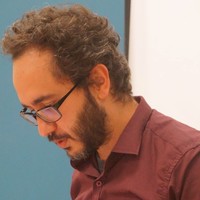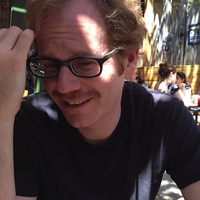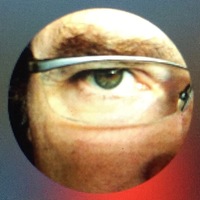I am Feodor Lynen Research Scholar of the Alexander von Humboldt Foundation at the École normale supérieure Paris as well as Wissenschaftlicher Mitarbeiter (Post-Doc Researcher and Lecturer) and habilitation candidate at TU Braunschweig. I currently work on the philosophy of Henri Bergson in light of 18th to 20th century philosophy of language and in respect of new developments in philosophical realism.
Much of my past research was concerned with the role of symbols, symbolism and symbol formation for perceiving, representing, and understanding the world. My main philosophical interests, hence, lie at the intersection of theories of knowledge and mind as well as phenomelogy, anthropology and theories of culture and life. I specialize in the works of Ernst Cassirer, Immanuel Kant, Friedrich Nietzsche, and Henri Bergson. I also have interests in Classical German Philosophy, (Post-)Analytic Philosophy and Intercultural Philosophy.
***
Supervisors: Prof. Dr. Günter Abel, Prof. Dr. Martina Plümacher, Prof. Dr. Christian Möckel (†), Prof. Dr. Nicole Karafyllis, and Dr. Caterina Zanfi
Phone: +49 (0) 531 391 86 15
Address: Dr. Tobias Endres
Institut für Philosophie
Bienroder Weg 80
D-38106 Braunschweig
Much of my past research was concerned with the role of symbols, symbolism and symbol formation for perceiving, representing, and understanding the world. My main philosophical interests, hence, lie at the intersection of theories of knowledge and mind as well as phenomelogy, anthropology and theories of culture and life. I specialize in the works of Ernst Cassirer, Immanuel Kant, Friedrich Nietzsche, and Henri Bergson. I also have interests in Classical German Philosophy, (Post-)Analytic Philosophy and Intercultural Philosophy.
***
Supervisors: Prof. Dr. Günter Abel, Prof. Dr. Martina Plümacher, Prof. Dr. Christian Möckel (†), Prof. Dr. Nicole Karafyllis, and Dr. Caterina Zanfi
Phone: +49 (0) 531 391 86 15
Address: Dr. Tobias Endres
Institut für Philosophie
Bienroder Weg 80
D-38106 Braunschweig
less
Related Authors
Rafael Garcia
Universidade Estadual de Campinas
Zsuzsanna Mariann Lengyel
Eötvös Loránd University
Jeffrey Andrew Barash
Université de Picardie Jules Verne
Gregory Moynahan
Bard College
Robert S Lehman
Boston College
Sebastian Luft
Universität Paderborn
Capeilleres Fabien
Université de Caen Normandie
Pierre Keller
University of California, Riverside
InterestsView All (9)











Uploads
Books by Tobias Endres
most fundamental issue in philosophy and to do so in an intercultural
framework. The question of the human was the starting point for a
legendary discussion between two German philosophers who met in
Davos in 1929. We return to this historical event and re-imagine the
debate between Martin Heidegger and Ernst Cassirer from a global
perspective. Generating twenty papers from elaborate discussions, our
authors contribute to the thought experiment by inviting the Japanese
philosopher Nishida Kitarō from Kyoto and other Japanese thinkers into
the debate to overcome the challenge of Eurocentrism inherent to these
historic days in Davos.
Papers by Tobias Endres
rectorat de 1929 à la lumière du problème philosophique de l’unité de la
science. On y montre que l’on peut défendre un pluralisme épistémologique
qui ne conduit pas à un pluralisme aléthique. D’un point de vue historique,
on peut montrer que le discours du rectorat peut être lu comme l’achèvement
secret, jusqu’à présent négligé par les chercheurs, de l’oeuvre principale de
Cassirer.
The article examines Cassirer’s widely neglected theory of truth as
presented in his rectoral speech from 1929 and in light of the philosophical
problem of the unity of science. Systematically it is shown that an
epistemological pluralism can be defended that does not lead to an alethic
pluralism. Historically it can be shown that the rectoral speech can be read as the secret completion, hitherto neglected by scholars, of Cassirer’s main work.
ological in the sense of Hegel’s dialectic. Hegel’s impact on Cassirer has been noticed from the first wave of his reception in the US onward and has been investi
gated in comparison with the impact of Kant more than once throughout the ongo
ing global “Cassirer-renaissance”. The attempt to actually read Cassirer through the eyes of Hegel is, however, a rather new phenomenon. In Hegel, the concept of the negative is significant in regard to the concept of reality, the concept of (in)finity, the concept of subjectivity and the concept of relatedness. But first and foremost–and this will be decisive in this paper–the negative, in the form of the concept of nega
tion, plays a major role in Hegel’s dialectic method. It is on this point that this paper will question the legitimacy of such strong Hegelian readings of Cassirer’s main works.
(1) The three symbolic functions (expression, presentation, signification), as presented in volume three of The Philosophy of Symbolic Forms, are a complete presentation of all symbolic functionality. Together with the three layers of symbolic formation (mimetic, analogic, symbolic), as presented in volume one, they form a matrix that can encompass the totality of humans’ spiritual, i.e. cultural, life. Though Cassirer’s system is open for new symbolic forms, this matrix, and as well the corresponding symbolic forms myth, language, and science, constitute the extrema of all symbolic formation. That is to say that there are no other symbolic functions or layers besides and that every symbolic form that is not myth, language, or science is a hybrid of the mentioned functions whilst the paradigmatic three are a sort of pure modality of their underlying functionality.
(2) Cassirer’s methodology and matrix of the symbolic, as set out above, allows to shed lights on the genesis of culture. Although Cassirer is quite clear about that a purely genetical approach to culture is philosophically unsatisfactory and methodologically hopelessly misguided (cf. An Essay on Man, p. 126), there is room for a genealogical perspective on the development of culture.
hidden reception of Ernst Cassirer’s works in both historical and systematical
terms. I want to explore this idea by trying to establish links between
the philosophies of Ernst Cassirer and Wilfrid Sellars. The latter of whom,
through the reception of his followers Richard Rorty, John McDowell, and
Robert Brandom, is nowadays well known as the founder of the so called
Pittsburgh School of (post-)analytical philosophy. To ensure that a project
linking Cassirer and Sellars is not from the very beginning unfounded,
I will, right from the outset, try to clarify some criteria that would make it
possible to speak of a reception or an influence in a philosophically meaningful
way.
Keywords: Ernst Cassirr; philosophical anthropology; animal symbolicum.
Der Artikel nimmt sich zum Ziel, der anthropologischen Spur im Werk Cassirers entlang der Nachgelassenen Manuskripte und Texte zu folgen. Darin finden sich nicht nur ein druckreifes Manuskript, das den vierten Teil der Symbolphilosophie – und somit die angekündigte Auseinandersetzung mit der Gegenwartsphilosophie – beinhaltet, sondern auch eine Vorlesung Cassirers zur Anthropologie, die er 1929 in Davos hielt und die von der dortigen Disputation mit Heidegger überschattet wird, weshalb sie selten Beachtung findet. Es wird sich zeigen, dass Cassirer die Anthropologie seiner Zeit einer radikalen Kritik unterzieht und dazu systematisch auf Argumente, die im Deutschen Idealismus – insbesondere bei Hegel – entwickelt wurden, zurückgreift. Letztlich ist es aber genau diese Kritik, die eine Öffnung der Kulturphilosophie in Richtung der philosophischen Anthropologie, als solche An Essay on Man tatsächlich gelesen werden kann, erlaubt.
Starting from this interpretation, the article asks for the possibility to contribute to criticism towards recent theories of perception within the tradition of analytic philosophy. At the heart of things is the question: what should we actually conceive as the objects of perception? In most of its debates, analytic philosophy finds itself in the stranglehold of an internalism-externalism-dichotomy, that rests upon an unsettled understanding of objectivity. By contrast, Cassirer’s understanding of objectivity as objectification allows us to reformulate the question of the objects of perception, and hence to undermine the above dichotomy.
The main points of reference of the critical examination are Peter Strawson’s Perception and its Objects (1979) and Tim Crane’s What is the Problem of Perception (2005). It will be shown that the foundation of Cassirer’s theory of perception, the distinction between perception of things and perception of expression, provides exactly the critical capability to move on from Crane’s contemporary diagnosed unsatisfactory alternative between disjunctivism and intentionalism which amounts to a new version of the controversy between direct realism and sense-data-theories in the twentieth century. Cassirer’s theory enables one to reconcile the directedness of perception with the representational capacities of the human mind.
Die Cassirer-Rezeption befindet sich in dieser Hinsicht an der Schwelle des Eintritts in eine neue Phase, die im Lichte eines ‚Neulesens‘ sowie einer zunehmend globalen Vernetzung betrachtet werden kann.
Von der Wissensforschung und Wahrnehmungstheorie über neue Gebiete symbolischer Formung wie Film, Geld und Virtualität bis zum spannungsreichen Verhältnis zwischen Demokratie und Mythos: Der hier eingeleitete Band versammelt Beiträge, die sich als Aktualisierung von Cassirers Philosophie der Kultur- und Wissensformen im 21. Jahrhundert verstehen.
most fundamental issue in philosophy and to do so in an intercultural
framework. The question of the human was the starting point for a
legendary discussion between two German philosophers who met in
Davos in 1929. We return to this historical event and re-imagine the
debate between Martin Heidegger and Ernst Cassirer from a global
perspective. Generating twenty papers from elaborate discussions, our
authors contribute to the thought experiment by inviting the Japanese
philosopher Nishida Kitarō from Kyoto and other Japanese thinkers into
the debate to overcome the challenge of Eurocentrism inherent to these
historic days in Davos.
rectorat de 1929 à la lumière du problème philosophique de l’unité de la
science. On y montre que l’on peut défendre un pluralisme épistémologique
qui ne conduit pas à un pluralisme aléthique. D’un point de vue historique,
on peut montrer que le discours du rectorat peut être lu comme l’achèvement
secret, jusqu’à présent négligé par les chercheurs, de l’oeuvre principale de
Cassirer.
The article examines Cassirer’s widely neglected theory of truth as
presented in his rectoral speech from 1929 and in light of the philosophical
problem of the unity of science. Systematically it is shown that an
epistemological pluralism can be defended that does not lead to an alethic
pluralism. Historically it can be shown that the rectoral speech can be read as the secret completion, hitherto neglected by scholars, of Cassirer’s main work.
ological in the sense of Hegel’s dialectic. Hegel’s impact on Cassirer has been noticed from the first wave of his reception in the US onward and has been investi
gated in comparison with the impact of Kant more than once throughout the ongo
ing global “Cassirer-renaissance”. The attempt to actually read Cassirer through the eyes of Hegel is, however, a rather new phenomenon. In Hegel, the concept of the negative is significant in regard to the concept of reality, the concept of (in)finity, the concept of subjectivity and the concept of relatedness. But first and foremost–and this will be decisive in this paper–the negative, in the form of the concept of nega
tion, plays a major role in Hegel’s dialectic method. It is on this point that this paper will question the legitimacy of such strong Hegelian readings of Cassirer’s main works.
(1) The three symbolic functions (expression, presentation, signification), as presented in volume three of The Philosophy of Symbolic Forms, are a complete presentation of all symbolic functionality. Together with the three layers of symbolic formation (mimetic, analogic, symbolic), as presented in volume one, they form a matrix that can encompass the totality of humans’ spiritual, i.e. cultural, life. Though Cassirer’s system is open for new symbolic forms, this matrix, and as well the corresponding symbolic forms myth, language, and science, constitute the extrema of all symbolic formation. That is to say that there are no other symbolic functions or layers besides and that every symbolic form that is not myth, language, or science is a hybrid of the mentioned functions whilst the paradigmatic three are a sort of pure modality of their underlying functionality.
(2) Cassirer’s methodology and matrix of the symbolic, as set out above, allows to shed lights on the genesis of culture. Although Cassirer is quite clear about that a purely genetical approach to culture is philosophically unsatisfactory and methodologically hopelessly misguided (cf. An Essay on Man, p. 126), there is room for a genealogical perspective on the development of culture.
hidden reception of Ernst Cassirer’s works in both historical and systematical
terms. I want to explore this idea by trying to establish links between
the philosophies of Ernst Cassirer and Wilfrid Sellars. The latter of whom,
through the reception of his followers Richard Rorty, John McDowell, and
Robert Brandom, is nowadays well known as the founder of the so called
Pittsburgh School of (post-)analytical philosophy. To ensure that a project
linking Cassirer and Sellars is not from the very beginning unfounded,
I will, right from the outset, try to clarify some criteria that would make it
possible to speak of a reception or an influence in a philosophically meaningful
way.
Keywords: Ernst Cassirr; philosophical anthropology; animal symbolicum.
Der Artikel nimmt sich zum Ziel, der anthropologischen Spur im Werk Cassirers entlang der Nachgelassenen Manuskripte und Texte zu folgen. Darin finden sich nicht nur ein druckreifes Manuskript, das den vierten Teil der Symbolphilosophie – und somit die angekündigte Auseinandersetzung mit der Gegenwartsphilosophie – beinhaltet, sondern auch eine Vorlesung Cassirers zur Anthropologie, die er 1929 in Davos hielt und die von der dortigen Disputation mit Heidegger überschattet wird, weshalb sie selten Beachtung findet. Es wird sich zeigen, dass Cassirer die Anthropologie seiner Zeit einer radikalen Kritik unterzieht und dazu systematisch auf Argumente, die im Deutschen Idealismus – insbesondere bei Hegel – entwickelt wurden, zurückgreift. Letztlich ist es aber genau diese Kritik, die eine Öffnung der Kulturphilosophie in Richtung der philosophischen Anthropologie, als solche An Essay on Man tatsächlich gelesen werden kann, erlaubt.
Starting from this interpretation, the article asks for the possibility to contribute to criticism towards recent theories of perception within the tradition of analytic philosophy. At the heart of things is the question: what should we actually conceive as the objects of perception? In most of its debates, analytic philosophy finds itself in the stranglehold of an internalism-externalism-dichotomy, that rests upon an unsettled understanding of objectivity. By contrast, Cassirer’s understanding of objectivity as objectification allows us to reformulate the question of the objects of perception, and hence to undermine the above dichotomy.
The main points of reference of the critical examination are Peter Strawson’s Perception and its Objects (1979) and Tim Crane’s What is the Problem of Perception (2005). It will be shown that the foundation of Cassirer’s theory of perception, the distinction between perception of things and perception of expression, provides exactly the critical capability to move on from Crane’s contemporary diagnosed unsatisfactory alternative between disjunctivism and intentionalism which amounts to a new version of the controversy between direct realism and sense-data-theories in the twentieth century. Cassirer’s theory enables one to reconcile the directedness of perception with the representational capacities of the human mind.
Die Cassirer-Rezeption befindet sich in dieser Hinsicht an der Schwelle des Eintritts in eine neue Phase, die im Lichte eines ‚Neulesens‘ sowie einer zunehmend globalen Vernetzung betrachtet werden kann.
Von der Wissensforschung und Wahrnehmungstheorie über neue Gebiete symbolischer Formung wie Film, Geld und Virtualität bis zum spannungsreichen Verhältnis zwischen Demokratie und Mythos: Der hier eingeleitete Band versammelt Beiträge, die sich als Aktualisierung von Cassirers Philosophie der Kultur- und Wissensformen im 21. Jahrhundert verstehen.
theoretical truth [...]? In a time in which such
questions can be raised, philosophy cannot
stand aside, mute and idle.“
(Ernst Cassirer: Symbol, Myth, and Culture, p. 61.)
There is no doubt that this question, which Cassirer found indicative
of the European Zeitgeist of the first decades of the
twentieth century, also pervades Western culture today. In
times of fake news, conspiracy theories, alternative facts, and
science denial, as well as the rise of political myth and the erosion
of expertise and democratic institutions, doubt about the
possibility of objectivity and truth is a defining characteristic
of contemporary culture. Hence, if we follow Cassirer, philosophy
has once again a crucial societal duty to fulfill: the duty to
safeguard some notion of objectivity and of truth against epistemic
and cultural relativism, skepticism, and indifference.
This conference aims to reconsider the enduring relevance of
Cassirer’s own philosophy in view of this challenge. The Philosophy
of Symbolic Forms was after all an ambitious attempt to
radically widen and diversify the meaning of objectivity without
forfeiting its claims to universality or its firm footing in
human reason. By ascribing to mythical, religious, and linguistic
perceptions and expressions an objective status that most
of Western philosophy had preserved for scientific thought,
Cassirer’s philosophy can however be taken as either enriching
or weakening the ideas of objectivity, truth, and rationality.
In view of the current crisis of truth, we thus ask what
Cassirer’s theory of culture and of science can teach us about
the plurality, relativity, or universality of human understanding.
In the outline of the philosophy of culture Cassirer unites his two teachers' accentuations in the appropriation of Kant's transcendental method.
The conference talk will show what this means concretely for the conceptualization of a term that is central for epistemology and the philosophy of mind: The concept of perception will be determined in a regressive way starting from the facta of culture and in a correlative way with regard to the objective as well as the subjective side of the human mind. According to Cassirer, on the one hand, perception must be flexible enough to allow people to inhabit very different life worlds, as expressed, for example, in the mythical and the technical-scientific worldview. On the other hand, one of perception's core functions is the creation of constancy and invariance in gestalt-like and ultimately also conceptual invariance. Human perception is therefore characterized by a special form of elasticity that cannot be conceptually caught up within the framework of (minimally) empiricist and naturalistic research programs as they prevail at present. Thus, within the philosophy of perception, which is undoubtedly a pillar of contemporary philosophy, the actuality of Kant, Cassirer, and the transcendental method in general can be demonstrated.
In diesen Perspektiven geht jedoch verloren, dass sich Bergson bereits von früh an intensiv mit Kant und auch mit dem durch die Kulturphilosophie zentral gewordenen Begriff des Symbols intensiv auseinandersetzt und eine innovative Kritik an der Idee einer notwendig immer schon geformten Erfahrung (als begrifflich, symbolisch, räumlich, kategorial etc.) formuliert. Bergsons Philosophie ist also kein Entwurf, der sich seiner begrifflichen Voraussetzungen nicht bewusst ist, sondern sehr bewusst in Abgrenzung zu einem überbordenden Rationalismus entwickelt. Der Vortrag möchte in systematischer Absicht zeigen, dass Bergson gute Gründe dafür anführt, warum wir Freiheit nicht als Handeln aus guten Gründen verstehen können. In historischer Hinsicht soll mit Blick hierauf weiterhin der Einfluss Nietzsches auf Bergsons Konzept eines tieferen, nicht-oberflächlichen Ichs nachgezeichnet werden.
Bänden, deren Edition im Verlag Bruno Cassirer
(Berlin) er geleitet hatte, veröffentlichte Ernst
Cassirer im Jahr 1918 die große Monographie
Kants Leben und Lehre, die bis heute als
Standardwerk der Kant-Forschung gelten darf.
Was sich schon in den selbstständigen
Deutungen in Freiheit und Form zwei Jahre zuvor
angekündigt hatte, wird in diesem Werk
unübersehbares Ereignis: Cassirer entwickelt –
nach der frühen Prägung durch den Marburger
Neukantianismus – einen eigenen Zugriff auf die
entscheidenden Dimensionen des Kantischen
Lebenswerkes.
Auf der reflektierten Methodenbasis des
Vernunftkritizismus wird er sich in der Folge auf
sein Projekt einer „Grundlegung der
Geisteswissenschaften“ konzentrieren, in deren
Durchführung die „Kritik der Vernunft“ in „Kritik
der Kultur“ transformiert wird. Im Zentrum, dem
Ansatz bei den Bedeutung stiftenden Funktionen
des menschlichen Bewusstseins, stehen dabei
die Modi der Symbolbildung, deren Modell
Cassirer allemal im Kantischen Begriff der
Synthesis vorschwebt. Überall dort, wo er sich
mit systematischem Anspruch den Formen der
Kultur als der menschlichen Wirklichkeit
zuwendet, hält Cassirer fortan ebenso sehr an
der erkenntniskritischen Einsicht der
Kopernikanischen „Drehung“ fest, dass die
Bedingungen ihrer Möglichkeit in den Leistungen
des menschlichen Bewusstseins liegen, wie an
seiner grundlegenden Intuition einer
Pluralisierung dieses Apriori.
Das Symposion nimmt das Jubiläumsjahr
2018 zum Anlass, dem transzendentalen
Idealismus, den Cassirer für seine Formenlehre
des Geistes mutatis mutandis reklamiert, in
seinen einzelnen Modifikationen nachzugehen.
Zu (1): Dass Wahrnehmen und Denken als geistige Prozesse zu charakterisieren seien, ist nicht selbstverständlich, denn Wahrnehmungen haben selbst diejenigen Tiere, denen wir nicht ohne Weiteres Geist zusprechen wollen. Außerdem ist die Abhängigkeitsthese des Denkens von der Sprache, welche traditionell als Verkörperung des Geistes κατ᾽ ἐξοχήν gelten kann, im Lichte neuerer Forschung fraglich geworden. Dem Geistbegriff wäre sich auf dieser Ebene entlang der These einer anthropologischen Differenz zu nähern.
Zu (2): Cassirer nennt die Begriffe „objektiver Geist“, „Kultur“ und „symbolische Form“ oft in einem Atemzug. Wichtig in Abgrenzung ist aber zu sehen, dass Kulturgüter wie bspw. Kunstwerke oder Schriftzeugnisse nach Cassirer objektiver Geist im Sinne eines objektivierten, geronnenen Geistes sind. Dies ließe sich von den symbolischen Formen nicht sagen, denn diese bezeichnet Cassirer an prominenter Stelle als (produktive) Energien des Geistes. Der Geistbegriff wäre in diesem Kontext folglich entlang seiner formbildenden Prinzipien und zugleich seinem objektiven Bestand nach zu differenzieren.
Zu (3): Zuletzt gilt es, die objektivierenden Momente des Geistes näher zu bestimmen. Im Zusammenspiel von personaler, symbolisch formierter Wahrnehmung, objektiv vorliegenden Ausdrucksmedien und interpersonalem Handeln, erweisen sich die symbolischen Formen als geregelte Ausdrucksmodalitäten, die das geistige Leben ermöglichen.
Der Vortrag nimmt sich zum Ziel, der anthropologischen Spur im Werk Cassirers entlang der Nachgelassenen Manuskripte und Texte zu folgen. Darin finden sich nicht nur ein druckreifes Manuskript, das den vierten Teil der Symbolphilosophie – und somit die angekündigte Auseinandersetzung mit der Gegenwartsphilosophie – beinhaltet, sondern auch eine Vorlesung Cassirers zur Anthropologie, die er 1929 in Davos hielt und die von der dortigen Disputation mit Heidegger überschattet wird, weshalb sie selten Beachtung findet. Es wird sich zeigen, dass Cassirer die Anthropologie seiner Zeit einer radikalen Kritik unterzieht und dazu systematisch auf Argumente, die im Deutschen Idealismus – insbesondere bei Hegel – entwickelt wurden, zurückgreift. Letztlich ist es aber genau diese Kritik, die eine Öffnung der Kulturphilosophie in Richtung der philosophischen Anthropologie, als solche An Essay on Man tatsächlich gelesen werden kann, erlaubt.
Speakers: Michael Olson, Scott Edgar, Tobias Endres, Simon Truwant, Katherina Kinzel.